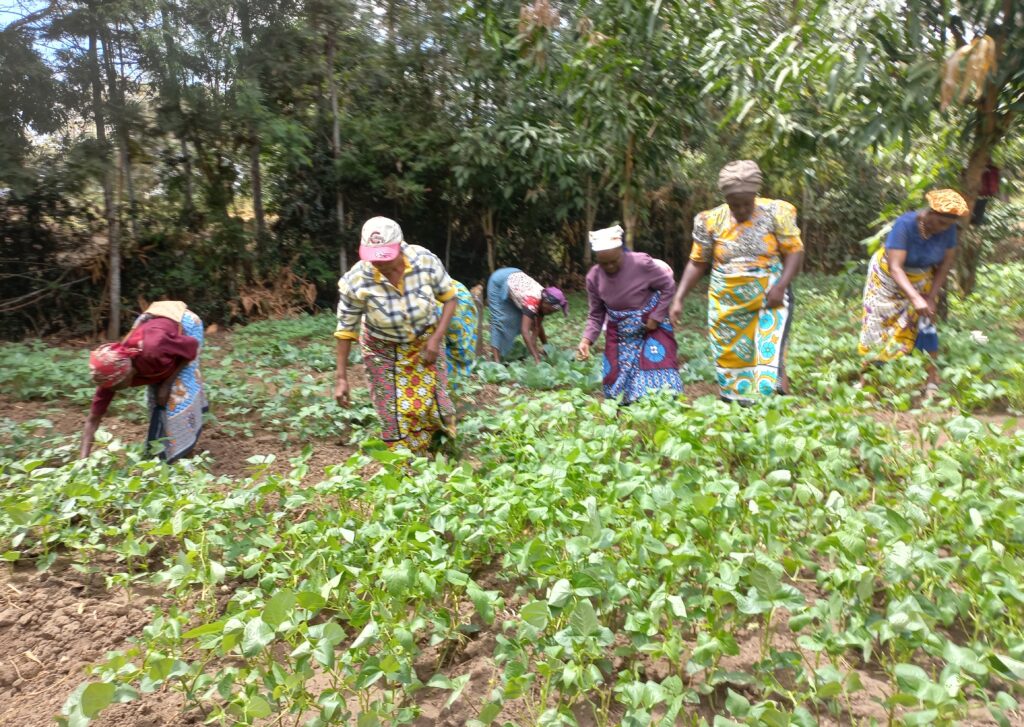Kenya is among countries in Africa that will benefit from an initiative dubbed ‘Mobilizing Access to the Digital Economy (MADE) Alliance Africa, by The African Development Bank (AfDB) Group and Mastercard.
The initiative aims to provide digital access to critical services for 100 million people and businesses in Africa over the next 10 years. In the first phase of its USD300 million commitment to the Alliance’s initial five years of programming, the African Development Bank will bring three million farmers in Kenya, Tanzania and Nigeria into the digital economy.
A press statement by AfDB says the project will be done via MasterCard Community Pass which gives farmers a digital credential to access a network of digital agricultural agents. Dr Beth Dunford, the AfDB Vice President for Agriculture, Human and Social Development speaking on the possibilities that digitalization brings to Africa’s farmers and food systems said that it holds so much potential.
MADE Alliance Africa, she noted chose to focus on the digitization of agriculture for smallholder farmers and specifically women as its first initiative considering Africa is home to 65 percent of the planet’s remaining uncultivated, arable land, she said.
“We believe that agriculture is a critical sector to drive Africa’s development. Agriculture accounts for nearly 60 percent of total employment in Africa and accounts for more than 25 percent of GDP in its low-income countries,” Dunford said. Across the continent, she added, there is no agriculture without women as they provide an estimated 60 percent to 80 percent of labor input to the sector.
“Roughly half of Africa’s smallholder farmers are women, with the majority of agriculture sector labour carried out by women. However, compared to their male counterparts, female farmers struggle to create a sustainable livelihood in agriculture because they are less likely to own property titles or other assets often needed to access financial services”, she explained.

Women engaged in farming: Kenya and especially women will benefit from an initiative dubbed ‘Mobilizing Access to the Digital Economy (MADE) by African Development Bank to access digital credential to access a network of digital agricultural agents
Women farmers, she continued to say, have less access to information and extension services, and they lack access to inputs such as seeds and fertilizers which makes them disproportionately impacted by climate risks and all these challenges result in women farmers typically producing up to 30 percent less output than male farmers.
The Community Pass, she said, helps women make farming a sustainable livelihood by enabling access to critical service providers like banks and agricultural buyers, as well as creating transparency.
The Pass is designed to operate in remote and rural communities often with limited connectivity and energy access”, she said adding that the technology, to adapt a popular phrase, “meets farmers where they are” has had challenges in delivering solutions and connecting smallholder farmers and women to financial institutions,
“These challenges however we believe can be overcome or mitigated through capacity building, infrastructure and new models for governments and the private sector to work together considering that women are the backbone of African economies, and investing in women entrepreneurs fosters women’s empowerment and agency over decisions around business, family and community,” Dunford said.
She noted that with Africa’s smallholder farmers having various challenges, MADE Alliance Africa will be able to solve them by boosting sustainable digital access to critical services.
Through the MADE Alliance, MasterCard Community Pass works with local banks to provide digital credentials to millions of smallholder farmers and women and according to Dunford, scaling the technologies to more farmers in a timely manner, there will be need to work with farmer cooperatives and networks of member farmers who reap many benefits of doing business as a unit.
The Alliance includes Equity Bank Group, Microsoft, Heifer International, Sustainable Agriculture Foundation, Unconnected.org, Yara, Kenya National Farmers’ Federation, Shell Foundation, and CRDB Bank. The Alliance also utilizes financial support from the U.S. Agency for International Development.